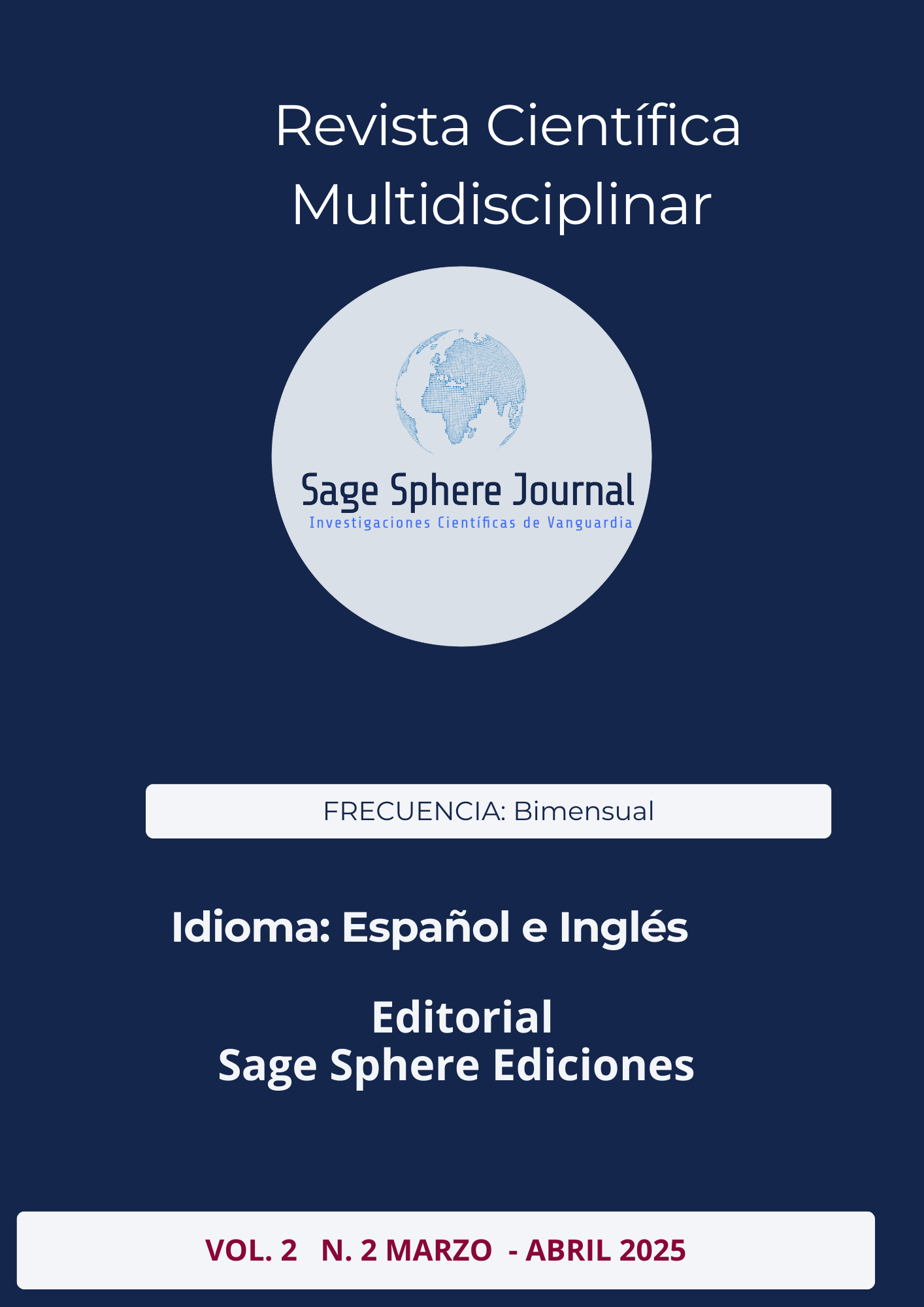Artificial intelligence as a pedagogical resource in higher education: teachers experiences
DOI:
https://doi.org/10.63688/jrd8es89Keywords:
Artificial Intelligence, Higher Education, Pedagogical Resources, Teacher Training, Technological InnovationAbstract
Artificial Intelligence (AI) has made a significant impact in the educational field, particularly in higher education, transforming pedagogical practices. This qualitative research aims to explore the experiences of university professors using AI as a pedagogical tool, focusing on identifying the benefits, challenges, and conditions that facilitate its integration. Through semi-structured interviews with five professors who use AI tools, data was collected on how these technologies have impacted learning personalization, time optimization, and the transformation of teaching methodologies. The results show that AI has enabled teachers to tailor content to the individual needs of students, reduce administrative workload, and enhance classroom interaction. Additionally, participants highlighted the importance of proper training and institutional support as key factors for successful AI implementation. However, ethical concerns related to data privacy and algorithmic bias were also identified. Overall, the findings suggest that when used ethically and reflectively, AI can be a powerful tool to enrich the educational experience, but continuous training is required to ensure its appropriate and responsible use in higher education.
References
Carvajal Chávez, C. A. (2024). Inteligencia artificial como recurso didáctico en la educación superior. Una revisión sistemática. RECIMUNDO, 8(4), 51–65. https://doi.org/10.26820/recimundo/8.(4).diciembre.2024.51-65
Cedeño Ibarra, C. A., Moreira Ramirez, L. V., & Meza Arguello, D. M. (2021). Padlet educativo como herramienta digital dirigido a la asignatura de ciencias naturales. Código Científico Revista De Investigación, 2(1), 74–90.
Chan, C. K. Y., & Tsi, L. H. Y. (2023). The AI Revolution in Education: Will AI Replace or Assist Teachers in Higher Education? arXiv. https://arxiv.org/abs/2305.01185
Gavilanes Laines, F. B., & Meza Arguello, D. M. (2021). Plataforma LMS en el proceso de enseñanza y aprendizaje dirigido a la asignatura de computación . Código Científico Revista De Investigación, 2(2), 117–143.
Hernández-Sampieri, R., Fernández-Collado, C., & Baptista-Lucio, P. (2014). Metodología de la investigación (6.ª ed.). McGraw-Hill Education.
Infante Plaza, Á. (2023). Percepción de los docentes sobre la inteligencia artificial en la educación superior. Scripta Mundi, 2(1), 45–56. https://doi.org/10.53591/scmu.v2i1.59
Ghimire, A., Prather, J., & Edwards, J. (2024). Generative AI in Education: A Study of Educators' Awareness, Sentiments, and Influencing Factors. arXiv. https://arxiv.org/abs/2403.15586 Kamalov, F., Santandreu Calong, D., & Gurrib, I. (2023). New Era of Artificial Intelligence in
Education: Towards a Sustainable Multifaceted Revolution. arXiv. https://arxiv.org/abs/2305.18303
Macías García, C. A., Moreira Ramirez, L. V., & Meza Arguello, D. M. (2020). Blog didáctico multimedia para el fortalecimiento del proceso de aprendizaje en el área de ciencias naturales. Código Científico Revista De Investigación, 1(1), 106–124.
Meza Arguello, H. L., Meza Arguello, D. M., Moreira Ramirez, L. V. ., & Vera Solórzano, J. L. . (2023). Uso de herramientas digitales para mejorar el rendimiento académico en la asignatura de ciencias naturales en estudiantes del séptimo año de educación básica: . UNESUM - Ciencias. Revista Científica Multidisciplinaria, 7(2), 131–150. https://doi.org/10.47230/unesum-ciencias.v7.n2.2023.131-150
Meza Arguello, H. L., Eras Briones, V. I., Meza Arguello, D. M., Simisterra Muñoz, J. M., & Franco Valdez, J. L. (2024). Escuela tradicional y escuela nueva: Estudio comparativo. Código Científico Revista De Investigación, 5(1), 838–850. https://doi.org/10.55813/gaea/ccri/v5/n1/410
Palma Rivera, D. P., Palma Rivera, A. D., Machuca Vivar, S. A., & Villalta Jadán, B. E. (2024). Percepciones y desafíos del uso de herramientas de inteligencia artificial en docentes universitarios. Revista Científica Cultura, Comunicación y Desarrollo, 9(1), 1–15. https://rccd.ucf.edu.cu/index.php/aes/article/view/666
Puente Tituaña, S. P., Bajaña Jiménez, L. A., Serrano Torres, C. E., & Vallejo Flores, K. M. (2024). La inteligencia artificial como recurso educativo en la educación superior. RECIMUNDO, 8(3), 48–67. https://doi.org/10.26820/recimundo/8.(3).julio.2024.48-67
Serrano Aguilar, J. L. (2024). Desafíos éticos, pedagógicos y tecnológicos en cuanto al uso de la Inteligencia Artificial (IA) en la Educación Superior. Sinergia Académica, 9(1), 1–12. https://doi.org/10.51736/vydee011
UNESCO. (2024). La inteligencia artificial en la educación. https://www.unesco.org/es/digital- education/artificial-intelligence
Downloads
Published
Issue
Section
License
Copyright (c) 2025 Danny Meliton Meza Arguello, María de los Ángeles Obando Burbano, Jessica Lisbeth Franco Valdez, Jesús Manuel Simisterra Muñoz (Autor/a)

This work is licensed under a Creative Commons Attribution 4.0 International License.
Los artículos publicados en la revista se distribuyen bajo la licencia Creative Commons Atribución 4.0 Internacional (CC BY 4.0). Esta licencia permite a terceros descargar, copiar, distribuir, adaptar y reutilizar una obra, incluso con fines comerciales, siempre que se otorgue el crédito adecuado al autor original.





